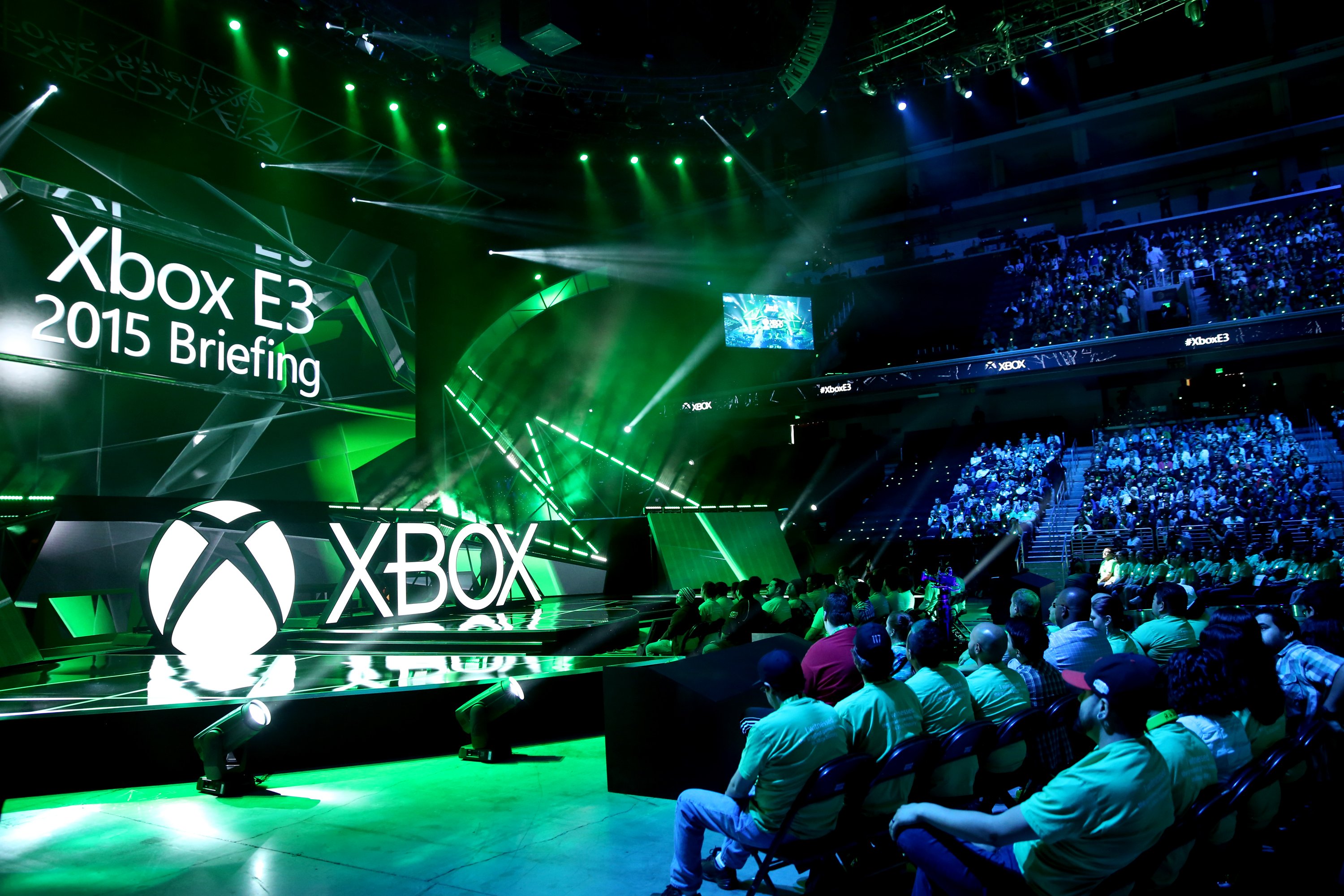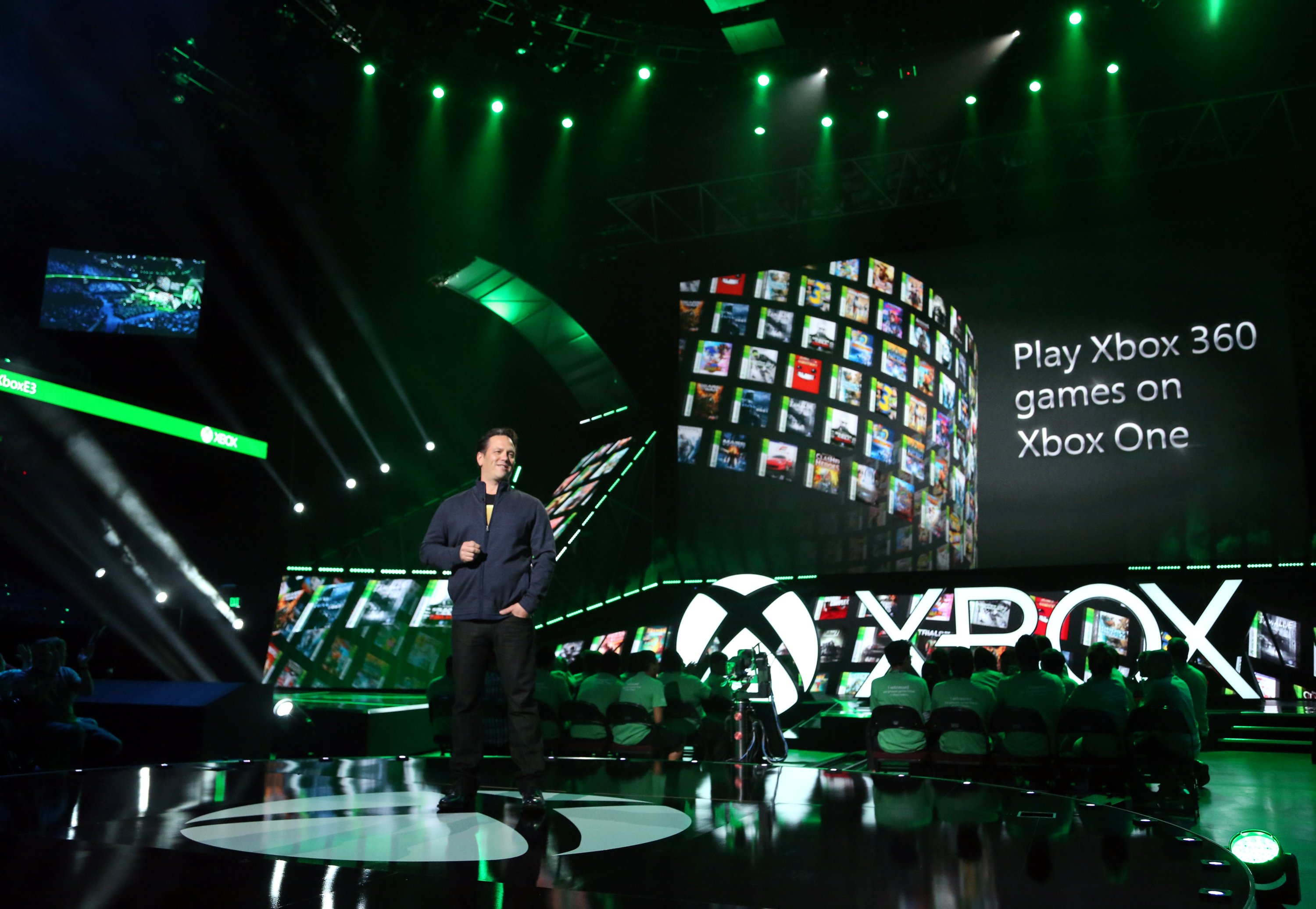Microsoft sort of relaunched Xbox One this week, and no one's noticed
Everyone knew how it was going to go. Halo 5, Rise of the Tomb Raider, Forza 6, Gears of War 4. Those headliners, excellent as they undoubtedly are, had been built up so much - by Microsoft in particular - that it’s really no wonder why Sony’s nostalgia triple-header has been capturing headlines. Surprise is everything - I love pizza more than is (literally) healthy, but I don’t whoop excited spittle into the delivery man’s face when he arrives to hand over the pie I’d ordered half an hour before. I solemnly take it, and I eat it in my special pizza robes, just like every Tuesday.
Knowing what was coming hurt the E3 Xbox conference a little, not least because it acted as some sort of psychic shadow over what was truly new. Ignoring the intriguing Recore and a raft of new ID@Xbox fare, the majority of true surprises focused around Microsoft’s console itself. So many, in fact, that it reads more like the feature list of a new console than one old enough to be legitimately sworn at for crying about cereal in supermarkets:
Early Access games. Backwards compatibility. Mod support. A new controller (and an update to the old model). PC cross-play. A new UI (which wasn’t even mentioned at the show itself). This is a machine now doing things that no one else is doing or has done; actively and visibly responding to customer feedback; welding elements of what’s made the PC market explode to the safe space of the console.

By the end of this year, barring the actual casing, Xbox One will be so unrecognisable from the enfant terrible introduced by Don Mattrick that it’s actually easier for me to believe that that original press conference was some cruel joke by a man who knew he’d be blasting off to Zynga’s cloud-base office space soon than it was a serious pitch to consumers.
In part, this comes down to the simple march of technology. Our controllers are mini-computers these days, so it’s not too much of a stretch to understand how some internal processes can be swapped, added or modified - you could make the point that anyone could do this stuff. It’s also easy to say that this is simple pandering, an attempt to claw back an audience that’s either “swapped sides” or refused to upgrade so far.
But to do either is to be uncharitable to the point of ignorance. How many times do you see a company say “you know what? We were wrong”, change everything, and then build a website designed specifically for you to tell them they’re still wrong about some things, so they can keep changing? Konami has spent the last few months tacitly denying that an entire man exists to save their blushes - this is the kind of headstrong industry we’re faced with.

Aside from backwards compatibility, which probably got a louder cheer than anything else at Microsoft’s conference, these are unsexy, quiet changes, but ones which make a huge difference - not least to Microsoft itself. For years, it’s sought for a way to beat its competitors to the indie game punch by introducing the much-maligned ID@Xbox parity clause. In Xbox Preview (and its enforced free trials) it’s just found a far better way to do it - and one that helps customers in the process. In building in Windows 10 connectivity, it’s just made good on the console’s “All-in-One” philosophy in a more meaningful way than using it as a sort of set-top box bodyguard.
Sign up to the GamesRadar+ Newsletter
Weekly digests, tales from the communities you love, and more
It’s the console we had, but better - which is more or less the definition of a new console by this point. Except it’s cheaper, so I don’t even know what to think anymore.



